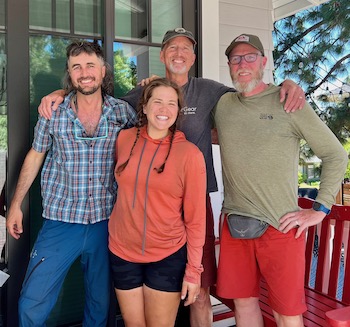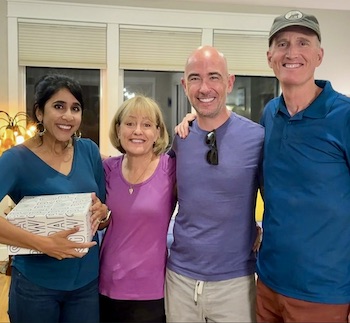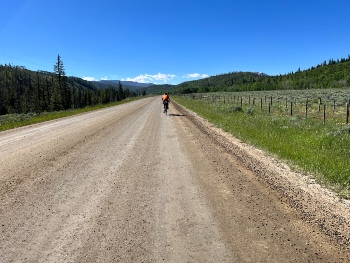A friend (two different friends, actually) forwarded an article from the September issue of the Atlantic titled “How America got Mean.” The author, David Brooks says he’s been obsessed with two questions for the last 8 years: Why have Americans become so sad, and Why have Americans become so mean?
Interesting questions indeed that I have wondered about, although clearly not as frequently, or as rigorously, or anywhere nearly as eloquently, as Mr. Brooks.
It is surprising to me that for the richest country in the world, the country where pretty much everyone else in the world is trying to get to, we are so anxious and depressed and unhappy. The percentage of people who say they don’t have close friends has increased fourfold since 1990. More than half of all Americans now say that no one knows them well. The percentage of high school students who report “persistent feelings of sadness or hopelessness” has risen from 26 percent to 44 percent since 2009.
Brooks sees his second question as related, and notes examples of rising meanness in Americans. Hate crimes rose in 2020 to their highest level in 12 years. He quoted the surprising statistic that in 2000, two thirds of American households gave to charity; in 2018 fewer than half did. Brooks says a number of people have proposed reasons for this rising meanness; based on sociology, demographics, and economics. But he is looking for the reason behind those explanations, the values that lead us to choose lifestyles that make us lonely and miserable. His conclusion is that “We inhabit a society in which people are no longer trained in how to treat others with kindness and consideration. Our society has become one in which people feel licensed to give their selfishness free rein.”
Brooks says what is needed is moral formation, consisting of three things: Helping people to learn to restrain their selfishness, teaching basic social and ethical skills, and helping people find a purpose in life. He reviews some of the history, and how the culture shifted from a general understanding, going back as far as Benjamin Franklin (who wrote “Men I find to be a Sort of Beings very badly constructed, as they are generally more easily provok’d than reconcil’d, more dispos’d to do Mischief to each other than to make Reparation, and much more easily deceiv’d than undeceiv’d”) that men and women tend to be generally self-centered, to an understanding that people just needed to be liberated from rigid authority structures, because people were naturally good and could be trusted to self-actualize on their own.
Jesus, explaining what it took to become a disciple, to be a Christian, led with “deny yourself” (Matt 16:24); he knew that was the hardest, and essential item. As our society decided that moral formation could be replaced by people just getting in touch with themselves, we saw organizations move from moral formation to ‘self-awareness focus’. Brooks contends that what we are witnessing is evidence that expecting people to build a satisfying moral and spiritual life on their own by looking within themselves is asking too much. People without the social skills to be decent to one another leads to falling levels of social trust. This untrustworthiness creates ‘vulnerable narcissists’. These are people who are addicted to thinking about themselves, but who often feel anxious, insecure, avoidant. They are extremely sensitive to rejection, and always on the lookout for signs of disrespect. Their uncertainty about their inner worth triggers distrust, shame and hostility.
I have what I call ‘the right hand turn test’. When I’m pulling up to a traffic signal that has just turned red, and I’m in the right lane, I look behind me to see if the car behind me is turning right. If so, since they will be able to turn right on the red light, I try to pull over to the left as much as I can, to give them room to make the right turn without waiting for the light to change to green. I am often the car behind, watching as the driver ahead of me is completely unaware of anyone but themselves, when they could have easily moved over to let others through. It’s a small thing, but Brooks makes the point that it’s a lot of small things that make the difference.
For the ‘vulnerable narcissists’, feelings of sadness and loneliness turn into bitterness. Feeling invisible, unheard, and disrespected, they become victims in their minds. They lash out and seek ways to humiliate those who have humiliated them. This ties the sadness epidemic to the rise in meanness. For the solution, Brooks quotes from Iris Murdoch’s book The Sovereignty of Good. Murdoch says that moral life is something that should happen continuously – treating people considerately in the complex situations of daily life. The essential moral act is casting a ‘just and loving’ attention on other people. She talks about the need to see others deeply, with a regard that makes them feel seen, heard and understood. “Really seeing others” surfaced somewhere else recently in my reading, as the only way we can truly love someone else. I tell you, it’s hard when you’re dealing with a vulnerable narcissist. But I become a better person as I become more curious about those around me, and more skilled in seeing from their point of view. Murdoch says we can “grow by looking”.
Part of “growing by looking” is watching others. There are people in my life, some of them subscribers to my newsletter, who are really good at ‘seeing’ others. They inspire me to become better at this, and to exercise this skill. I hope that you have similar people in your life, or that maybe you are that person for the people in your life!






But Glen, the Atlantic article is just a subtle political hit piece on Trump. As soon as the article compared him to Xi Kingpin and Putin, David Brooks identified himself as that self-righteous prig. A wise lady once told me, “Even if you don’t like the person in charge, you should at least respect the position they hold.” The left never respected the peoples choice and now we have a weaponized federal government.
Why involve politics in outdoor fun anyway?
John, I get your point. I can find wisdom from people who don’t completely agree with my personal opinions. I think absent the jibe at President Trump, there was still content in the article that made me think. I do agree with the wise lady’s statement about respecting positions, even if you don’t like the person holding that position.
I was taking a wider look than just outdoor fun. I do think that if everyone got outdoors more, we would all be the better for it. It might help us all be a little kinder to each other…